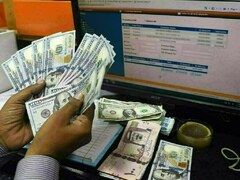SEOUL: South Korea announced on Tuesday an increase in its support package for the country’s vital semiconductor industry to 33 trillion won ($23.25 billion), up about a quarter from a 26 trillion won package unveiled last year.
The measures come in response to calls on the government to expand support at a time of growing policy uncertainty under the current U.S. administration and rising competition from Chinese rivals, the government said in a statement.
Seoul will also ramp up a financial assistance programme for the chips industry to 20 trillion won, versus the previous 17 trillion won, according to the joint statement from various ministries including the trade ministry.
South Korea’s decision to pump more money into its key chips sector is designed to help companies cope with heavier costs as they compete globally, it said.
Asia’s fourth-largest economy is home to the world’s top memory chip makers, Samsung Electronics and SK Hynix, though they have fallen behind some rivals in areas such as chip design and contract chip manufacturing.
In 2024, South Korea’s exports of semiconductors stood at $141.9 billion, accounting for 21% of the country’s total, government data showed.
Shipments to China and the United States stood at $46.6 billion and $10.7 billion, respectively.
U.S. President Donald Trump said on Sunday he would be announcing the tariff rate on imported semiconductors over the next week, adding that there would be flexibility with some companies in the sector.
Trump administration sued over tariffs in US Court of International Trade
In a meeting held on Tuesday after the announcement, Finance Minister Choi Sang-mok said the government would consult actively with the U.S. over its Section 232 investigations into semiconductor and biopharmaceutical imports to minimise any adverse impact on domestic companies.
Last week, South Korea announced emergency support measures for its auto sector, seeking to reduce the blow of U.S. tariffs on a sector that has seen years of sharply rising exports to the United States.
The measures include financial support for the auto industry as well as tax cuts and subsidies to boost domestic demand, while the government also vowed efforts to negotiate with the U.S. and help expand markets.























Comments